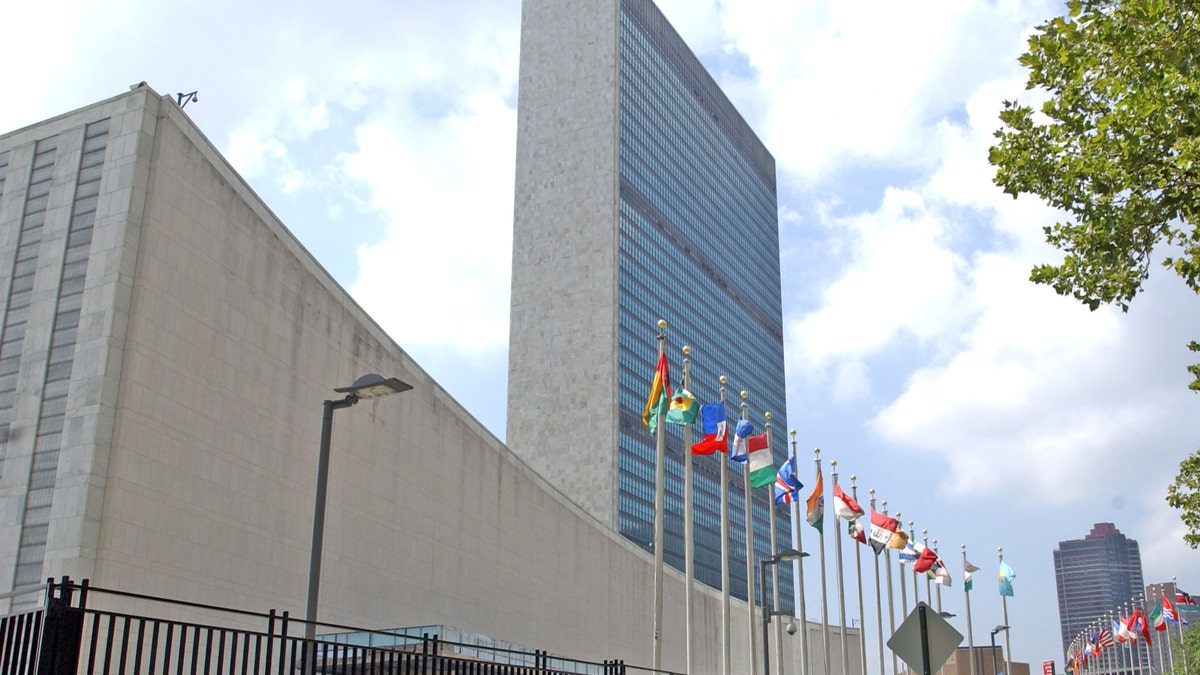
FILE -- The United Nations headquarters is seen in New York. (AP Photo/Osamu Honda)
On Wednesday, August 30, Prince Zeid Ra’ad al Hussein, the United Nations High Commissioner for Human Rights, delivered a strongly worded, public critique of President Donald Trump’s statements about the press in the United States.
Zeid wondered aloud whether Trump’s negative comments would result in attacks on journalists and press freedoms around the world. If they did, Zeid speculated, wouldn’t the U.S. President be responsible?
While many have challenged Trump’s frequent attacks on the media, Zeid’s remarks were notable for two reasons:
1) United Nations officials supposedly must refrain from ad hoc verbal attacks on the leadership of U.N. Member States, and
2) Zeid’s own record on protecting human rights and freedom of the press is less than impressive.
In other words, perhaps Trump’s record on the press should be scrutinized, and even criticized, but not by Prince Zeid Ra’ad al Hussein.
As High Commissioner for Human Rights, Zeid presides over a U.N. office that is supposed to maintain its moral authority while endorsing the principle of national sovereignty. As flawed as that stance may often be, to maintain his own credibility – such as it is – Zeid should not be seen as picking personally on national leaders. Moreover, a quick glance at the membership of the U.N. Human Rights Council illustrates the wisdom of such restraint on the part of senior UN officials.
Leadership on the Council rests in the Bureau of Council, which in the current year includes representatives of El Salvador, Georgia, Egypt, Iraq and Switzerland. None of these UN Member States has an exemplary record in the freedom-of-the-press department.
Some examples: the Committee to Protect Journalists has registered complaints about persecution of journalists in Egypt, Georgia, Iraq and El Salvador in 2016 and 2017. Abduction of journalists, persecution of sources, and attacks on news websites have occurred in these countries, even as their delegates direct the Human Rights Council, where Zeid manages the Secretariat.
In Switzerland, the government has withheld cooperation from investigations into the actions of U.N. World Intellectual Property Organization (WIPO) Director General, Francis Gurry, who has, among other things, threatened to silence journalists by filing bogus charges against those who document his abuses.
Moreover, under Zeid’s stewardship, the Office of the High Commissioner for Human Rights has run aground twice on gross human rights abuses disclosed by its own staff members. Rather than finding protection in the Office of the High Commissioner, they instead became targets at the hands of Zeid himself, even as he tried to conceal their disclosures.
In fact, the OHCHR has racked up an appalling record of retaliation against whistleblowing staff members. In 2015, the news broke that peacekeepers in the Central African Republic were sexually abusing young boys at a camp for refugees displaced by war. Anders Kompass, the Chief of Field Operations and Technical Cooperation who reported to Zeid, transmitted the report on the abuses to French diplomats, and French law enforcement was deployed immediately to investigate and stop the abuse.
Zeid’s reaction? He suspended and investigated Kompass for “leaking” the information—although Kompass was acting within his own scope of authority--in a bid to stop horrific crimes from continuing to occur.
Kompass’ action was fully vindicated and endorsed a year later by an independent investigative panel appointed by then Secretary General Ban Ki-moon. The same panel found that Zeid had a “singleminded determination to pursue an investigation” against Kompass rather than the sexual abusers, an accusation Zeid has strongly denied.
Another one of Zeid’s staffers balked at informing the government of China of the identities of human rights defenders scheduled to travel to Geneva for a Human Rights Council session where they would likely deliver remarks critical of the Chinese government. She now says she is suffering from harassment, and she has found no protection forthcoming from the High Commissioner.
In his remarks about Donald Trump, Zeid tried to highlight the irony of a U.S. President attacking the press, given America’s history of vigorously protecting and defending press freedoms.
As Zeid put it, “It’s really quite amazing when you think that freedom of the press, not only sort of a cornerstone of the U.S. Constitution but very much something that the United States defended over the years is now itself under attack from the President.”
It is equally amazing to find that whistleblowers in Zeid’s office who bring to light gross human rights abuse or try to protect those who take huge risks to bring those abuses to light, subsequently find themselves under attack from the High Commissioner, or without his support.
